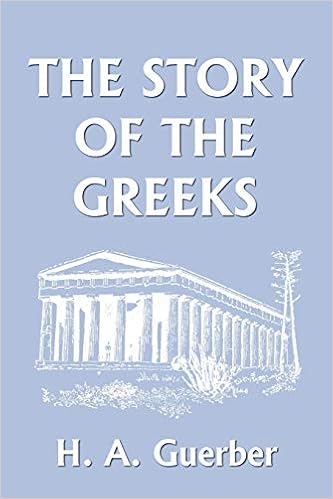Boeotia was now rid of the Sphinx; and when the Thebans heard the joyful news of its death, they welcomed Oedipus with much joy. In reward for his bravery, they gave him not only the throne, but also the hand of Jocasta, the widowed queen. It was thus that Oedipus, although he did not know it, fulfilled the second part of the prophecy, and married his own mother.
Several years now passed by, during which Oedipus ruled the Thebans so wisely, that they all loved him dearly, and went to him for advice in all their troubles. Finally the good times came to an end; and the people were again terrified, because a plague, or great sickness, broke out in the city, and many of the inhabitants died.
All kinds of medicines were tried, but without effect; and all the gods were asked to lend their aid. In despair, Oedipus sent a messenger to Delphi to ask the oracle how the disease could be stopped. The oracle for once gave a plain answer, and said that the plague would cease only when the murderer of Laius had been found and punished.
Investigations were now made for the first time, and it was found that Oedipus was the one who had slain the king. At the same time, the servant confessed that he had not killed the royal child; and the shepherd told how he had found the babe and carried him to Corinth, where he had been adopted by the king.
When Oedipus heard all this, he was driven almost mad with despair; for now he knew not only that he had murdered his father and married his mother, but that it was on his account that the plague had caused the death of so many people in Thebes.
In her horror and grief at this discovery, Queen Jocasta killed herself. When Oedipus learned that she was dead, he ran into the room where she lay, and took one of the buckles which fastened her dress and put out his eyes with it, saying, that, since they had beheld such a sorrowful sight, they should never again see the light of day.


